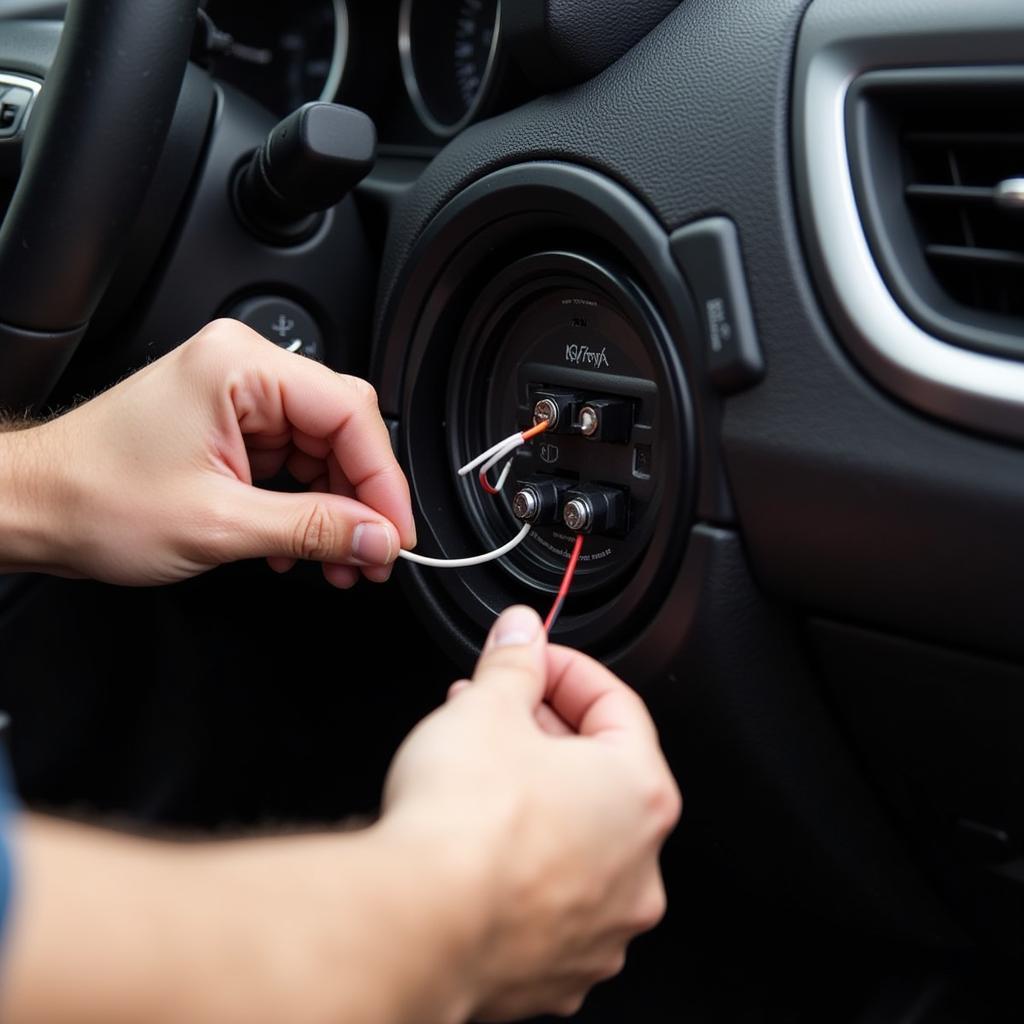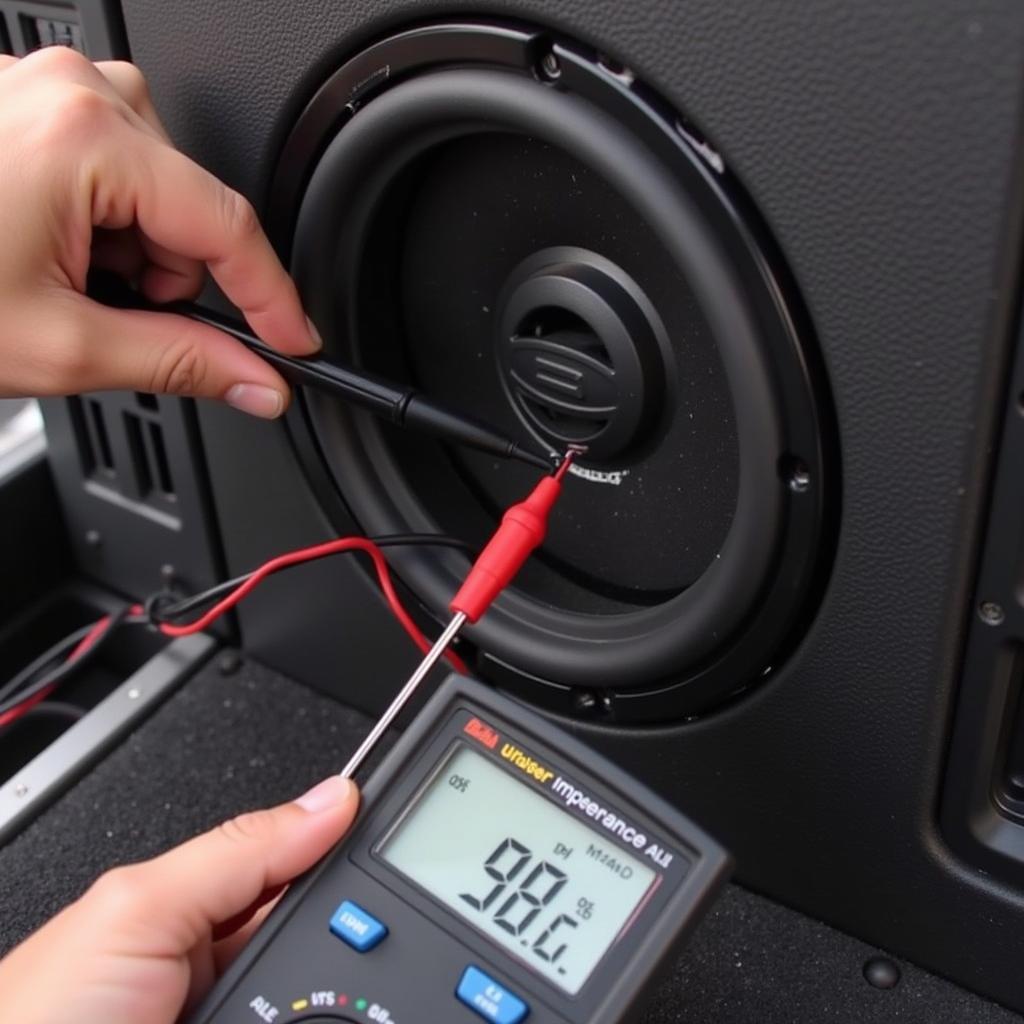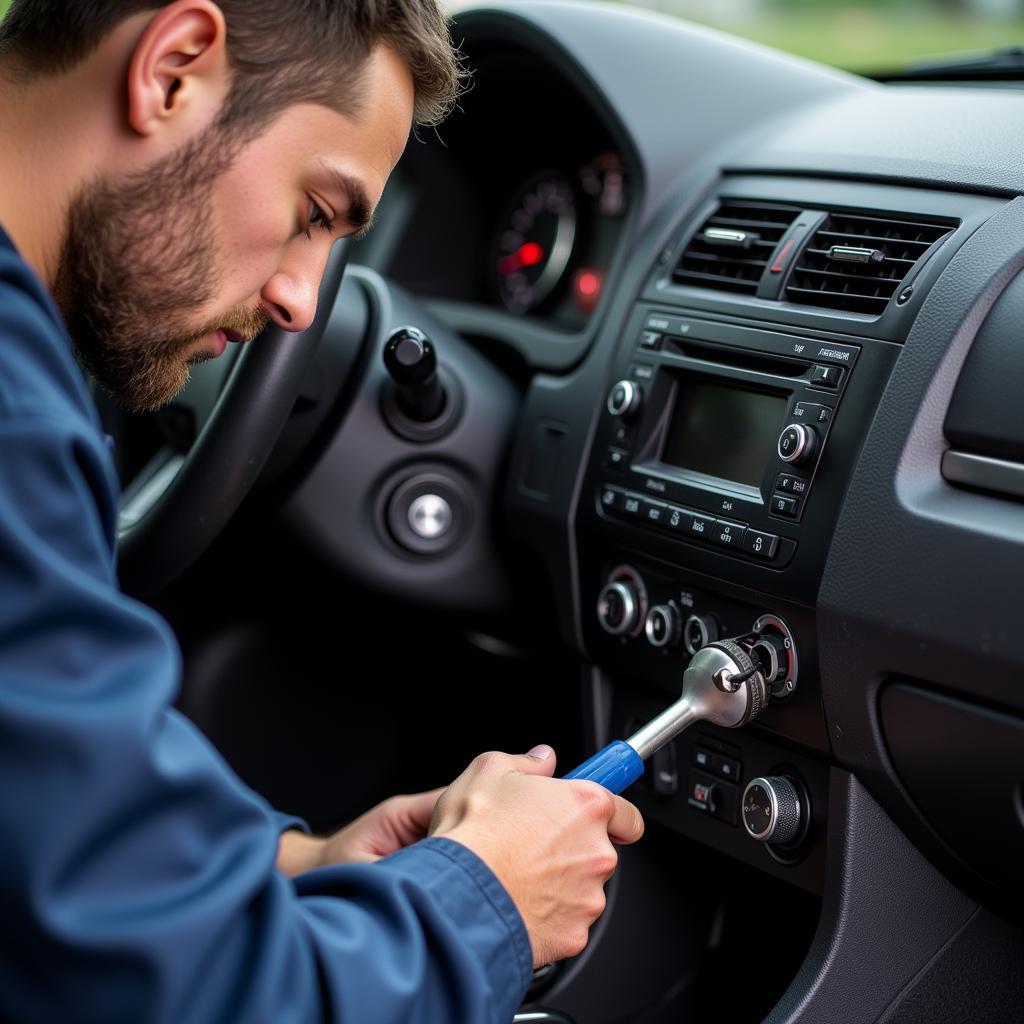Car speakers are vital for an enjoyable driving experience, providing entertainment, navigation instructions, and hands-free calling. When they malfunction, it can be incredibly frustrating. This guide provides comprehensive information on how to diagnose and implement a Car Speakers Fix, covering everything from simple troubleshooting to more complex repairs.
If your car speakers aren’t working as they should, don’t immediately assume you need professional help. Often, you can pinpoint and resolve the issue yourself. Check the speaker connections first, ensuring they are securely fastened. A loose wire can cause a complete loss of sound or intermittent audio. Also, inspect the head unit and any external amplifiers for correct settings and connections. You might find the solution is as simple as adjusting the balance or fader controls. For more involved fixes, you can check out how to fix busted speakers in car.
Diagnosing Car Speaker Problems
Before attempting a car speakers fix, it’s crucial to pinpoint the source of the problem. Start by isolating the affected speaker. If only one speaker is malfunctioning, the problem likely lies with that specific speaker or its wiring. If all speakers are affected, the issue could be with the head unit, amplifier, or a shared component.
Common Car Speaker Issues
Several common problems can affect car speakers. Blown speakers, characterized by a distorted or buzzing sound, often result from excessive power or physical damage to the speaker cone. Wiring issues, such as loose connections or damaged wires, can cause intermittent sound or complete silence. Problems with the head unit or amplifier can also affect the overall audio output. If your car speaker is vibrating excessively, you may want to check out how to fix vibrating car speaker.
 Inspecting Car Speaker Wiring for Loose Connections
Inspecting Car Speaker Wiring for Loose Connections
DIY Car Speakers Fix: Simple Solutions
Many car speaker issues can be resolved with simple DIY fixes. Check the fuse for the car stereo system. A blown fuse is a common culprit and an easy fix. Inspect the wiring for loose or damaged connections. If a wire is disconnected, reattach it securely. If a wire is damaged, replace it with a new wire of the same gauge. For cases of blown speakers, you might consider how to fix blown out car speakers.
Testing Car Speakers
Using a multimeter, you can test the speakers for continuity and impedance. This will help determine if the speaker itself is faulty. Set the multimeter to the ohms setting and touch the probes to the speaker terminals. A reading within the speaker’s specified impedance range indicates a functioning speaker. No reading or an infinite reading suggests a blown speaker. You can find guidance on where can I get my car speakers fixed if a DIY fix isn’t feasible.
 Testing a Car Speaker with a Multimeter
Testing a Car Speaker with a Multimeter
Advanced Car Speakers Fix
If simple troubleshooting doesn’t resolve the problem, more advanced repairs might be necessary. Replacing a blown speaker requires removing the door panel or other interior components to access the speaker. Repairing damaged wiring might involve tracing the wires back to the head unit or amplifier to identify and fix the damaged section. If you’re looking for solutions for a damaged speaker, check out fix busted car speaker.
Seeking Professional Help
While many car speaker issues can be resolved with DIY fixes, some problems require professional expertise. If you’re uncomfortable working with car electronics or if the problem persists despite your efforts, consider contacting a qualified car audio technician. They have the knowledge and tools to diagnose and repair complex issues.
“A common mistake DIYers make is using the wrong gauge wire for replacement,” says John Miller, a certified automotive electrician with 20 years of experience. “Using a wire that’s too thin can lead to overheating and even fire hazards.”
 Car Audio Technician Repairing Car Speakers
Car Audio Technician Repairing Car Speakers
Conclusion
A car speakers fix can range from a simple wire reconnection to a full speaker replacement. By understanding the common causes of speaker problems and following the troubleshooting steps outlined in this guide, you can often resolve the issue yourself. However, for more complex problems, seeking professional help is always a good idea.
If you need further assistance or expert advice, don’t hesitate to contact AutoTipPro at +1 (641) 206-8880. Our office is located at 500 N St Mary’s St, San Antonio, TX 78205, United States.
We’re here to help you get your car’s audio system back in top shape.




Leave a Reply